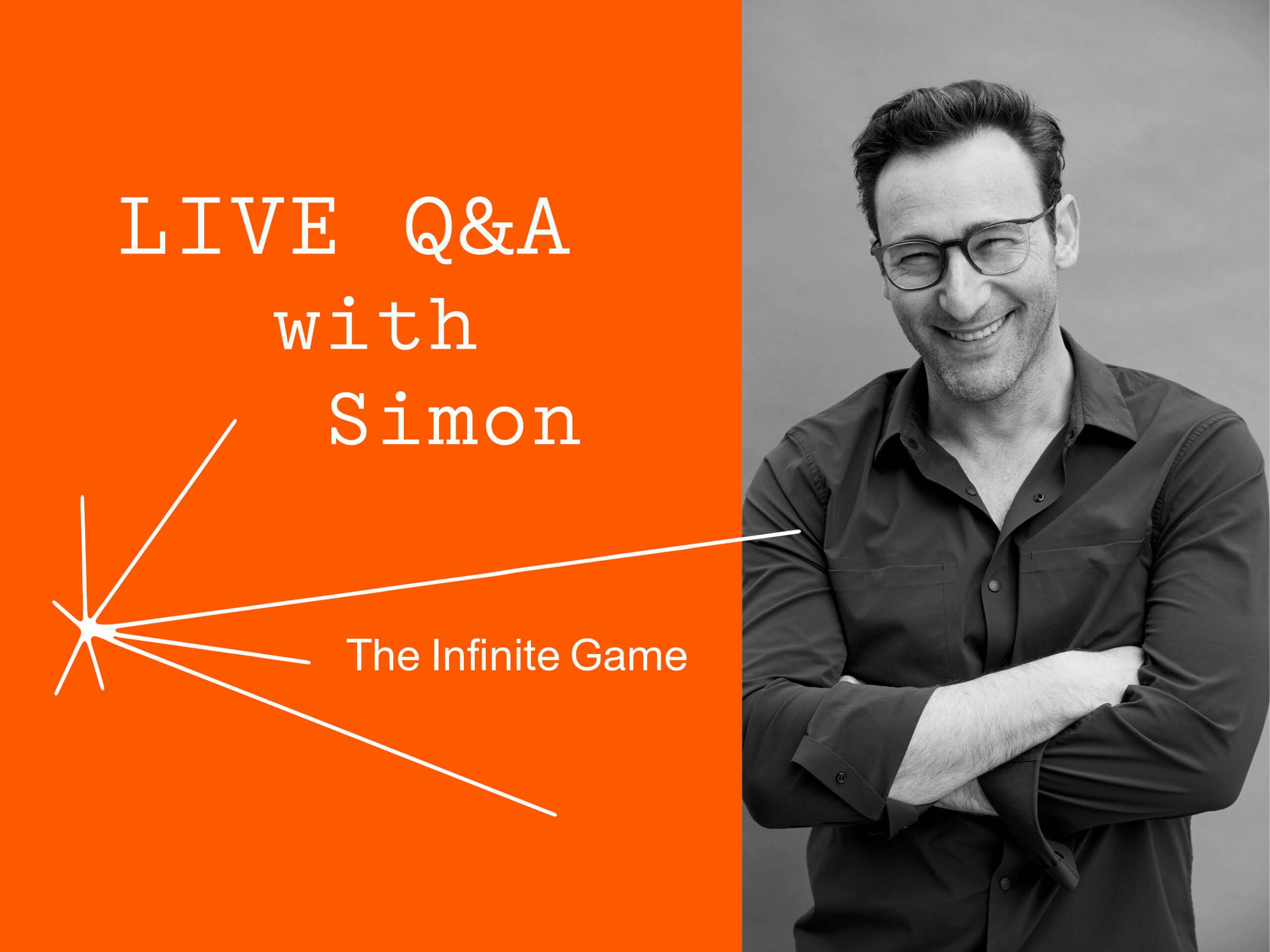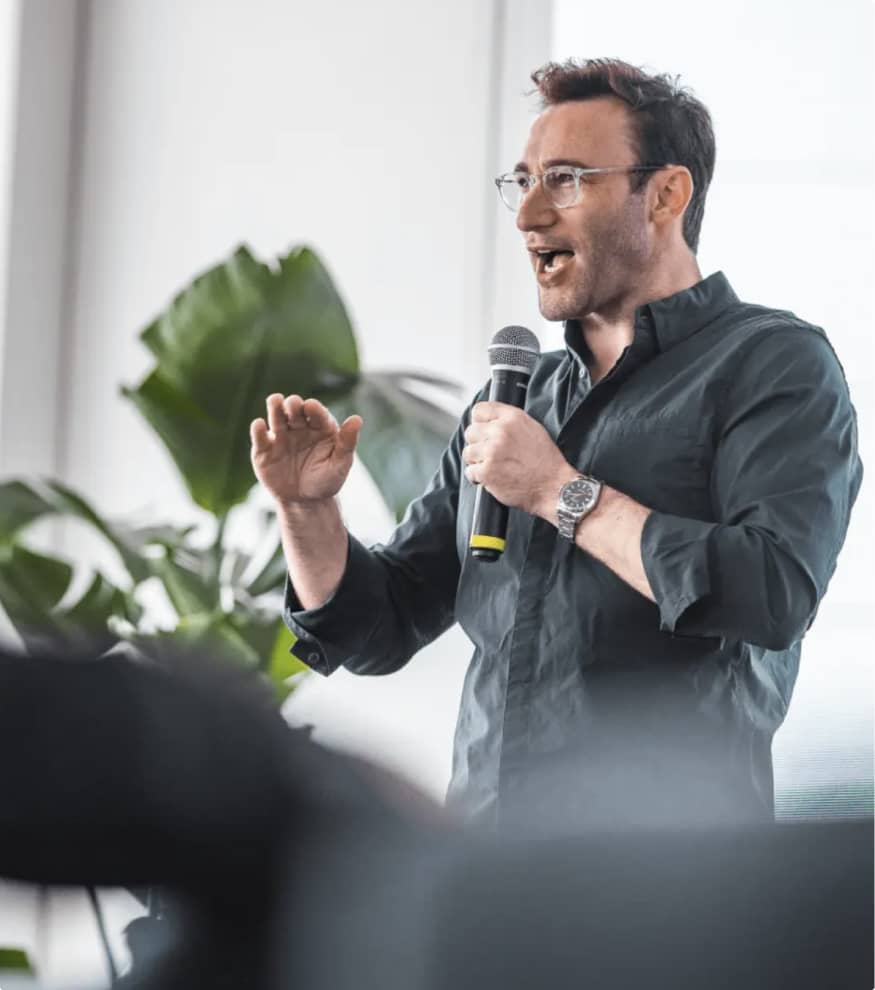Recently, Simon hosted a Live Q&A across our social platforms to answer questions from people like you, and talk all things Infinite Game. Check out what he had to say below:
Questions and answers have been edited for length and clarity.
Q: What is the Infinite Game?
Simon: In the mid-1980s, a philosopher and theologian by the name of Dr. James Carse defined two types of games: finite games and infinite games. A finite game has known players, fixed rules, and an agreed-upon objective. Infinite games have both known and unknown players, so you don’t necessarily know who all the players are and new players can join the game at any time. When we play with a finite mindset in an infinite game—meaning we play to win in a game that has no finish line—there are some very predictable and consistent outcomes. The major ones ones being the decline of trust, the decline of cooperation, and the decline of innovation. And if you look, a lot of the challenges that we’re facing in our world—both in business and in politics—are because too many of our leaders are playing with the wrong mindset for the game that they are in.
Q: What other companies have you noticed are playing with an infinite mindset since the book was published?
Simon: Some companies have actually been pretty public about this. Brian Chesky over at Airbnb has publicly said he wants to build an infinite company and be more infinite-minded; I love that. I’ve had conversations with some folks at Nike who said that they’re trying to be more infinite-minded. Walmart is trying to be more infinite-minded.
I think what’s happening is a lot of leaders that are coming in are recognizing that some of those leaders that came before them were so excessively finite-minded that they’ve actually done damage to the companies that they now lead. They have to change their mindsets to actually put their companies back on a longer path. I’m very proud that the little idea that Dr. Carse originated, and that I’ve been able to build upon, is really finding its momentum.
Q: What do you do to teach kids about the Infinite Game?
Simon: There’s a great story that really captures what it means to live with an infinite mindset… There’s a young monk with a remarkable natural ability for horse riding. And everyone in the village says, “You’re so lucky.” And the monk says, “We’ll see.” And then one day he has an accident, falls off his horse, breaks his leg, and ruins his career. And everyone in the village says, ‘You’re so unlucky.” And the monk says, “We’ll see.” Then war breaks out, and all the young men are sent into battle, but he can’t go because of his busted leg. And everyone in the village says, “You’re so lucky.”
The point is good news, bad news, who knows? Everything bad that happens to us will end, and everything good that happens to us will end. As Maya Angelou said, “Every storm eventually runs out of rain.” But teaching kids about that little Chinese proverb is really, really helpful.
Q: How do we teach an infinite mindset to Gen Z?
Simon: Well, we need to be teaching it to every generation, and frankly, it’s some of the older generations that struggle the most. It’s the Boomers that are the most finite-minded because that’s the Jack Welch generation, but I digress.
The way we teach it is the way we teach anything, which is we talk about it, we talk about it, we talk about it. Read my book, read Dr. Carse’s book, talk about it yourself. The great thing about finite and infinite games is that you don’t need me to share these ideas. They’re so simple, understandable, and repeatable.
I think we also need to build it into our schools. Too many schools are finite-minded. We teach math and science, but we don’t teach mindset. We don’t teach how to manage stress, we don’t teach how to view the world. I think we need all of that in our curricula.
Q: How is AI affecting the Infinite Game?
Simon: If AI is used for constant improvement—so if we plug it into a system so that it’s constantly finding errors and mistakes that we can constantly improve something and never feel that the work is done—then I really like it, and I think AI is valuable. When we use AI to try to “win”, to figure out formulas even though there’s no such thing as winning, then I think it only exaggerates all the ills of a finite mindset. It’s like rank or power: is power and rank good or bad? Well, it depends what you’re doing when you achieve it. So I think it’s the application of the AI that I’m more nervous of, and I think it’s important that we know about these two different games so that we apply it in the right way.
Q: How do we influence people we have no influence over?
Simon: I get this question all the time. We can only take responsibility for ourselves, and so we have to be the leaders we wish we had. No number of anonymously sent books to our boss will change the way that they lead, unfortunately.
What does change is that we become the examples. And when we lead the way that we think leadership should, what you find is that morale is higher, performance is higher, and any open-minded senior leaders will look down and say “What are you doing?” Then we can tell them, but we’ve got to make the case first. Or, if they continue to ignore us, it’s okay because we’re building great teams that will eventually get promoted out or move to other companies and take all the lessons they learned from us. This is very much a part of the infinite mindset, which is accepting and learning that we may not see results in the short term, but if we keep acting true to our values and keep acting toward our vision, then eventually it starts to ripple.
Q: What if I’m not a leader?
Simon: Every one of us is a leader and a follower. The best leaders are the best followers. No matter how senior they get, they still believe they’re in service to something bigger. The pope, for example, is in service to something even bigger than himself. So, believe it or not, the best leaders are the best followers. And if you’re just part of the group, then that’s okay. But if you’re the one who says, “I’m gonna take care of the people in my group, if I’m gonna take care of the people on my team,” you’re a leader.
Good followership looks a lot like good leadership, which is care about the person to the left and care about the person to the right. And the weaker ones are taught gratitude and learn to push harder, and they are welcome back into the team. And so the really interesting thing is if you really choose to be just a part of the team and not actually work toward the team, weirdly you’ll find that the team organically pushes you to the sides to try to teach you a lesson, which is “come be a part of the team”. Because we care about the group, and everybody knows if you support the group, you live longer.
Q: How can I bring The Infinite Game to my team and make it into an ongoing practice?
Simon: What I have found if you want to bring new ideas to a team is start talking about them. Just say, “I heard this idea. Can I share it with everybody?”
All of my ideas started off as conversations. All of my ideas start off as thoughts. Going out for lunch with friends or with teammates and I said, “Can I share with you an idea that I’ve had or have learned about or heard?”
It all goes back to the Law of Diffusion which tells us not to worry about converting people. Find the people who are more drawn to these early ideas. So when you talk to them, some people say, “You’re an idiot.” Okay, that’s fine. We don’t need to convince them. And some people say, “That’s cool! I love that. Where did you learn about that? I want to learn more about that.” And then you’ll start to build a community of people around ideas. But talk about them—talk about them obsessively. When I have an idea or find an idea, I become obsessed with the idea, and it’s all I talk about for a while.
Q: Why are Team-Building Programs so effective?
Simon: Whenever I would give a talk, invariably, someone would raise their hand and say, “Simon, it’s all fine and good what you talk about, but our company—we have no budget for leadership curriculum.” I talk about learning listening, about learning how to give effective confrontations and difficult conversations, all these great leadership skills—and people would always say, “We don’t have the budget for it,” or “Our company is too small,” or “My boss has no appetite for this.” And I’d always reply with the same answer, “Can you afford a book? Buy a book; start a Team-Building Program.”
A Team-Building Program is one of the best ways to start a leadership curriculum without any formal budgets or any formal learning. One of the things we found is when people did start Team-Building Programs, is they sometimes got a little stuck. So what we did is we built a Team-Building Program where I ask the questions, and they come with guided discussions, and we really offer a way for you to go deep and have really good conversations.
Explore the Infinite Game Team-Building Program here.
Q: How do I respond to leaders who have an infinite mindset in their policies but have rolled out increasingly finite measures of performance?
Simon: Well, then they don’t really have an infinite mindset. Every company seems to have a purpose statement on their website, but do they actually make decisions based on or to advance that purpose? And you’ll see that the angel is in the details. So if a leader talks a good game but doesn’t act a good game, then it’s just talk. It’s just marketing. No organization or leader is perfect. They can at least say, “We’re trying to figure this out. We’re struggling to figure this out. We’re open to ideas.” At least if they did that, I’d believe them. But if all their incentives and rewards are finite, then they’re working counterproductively, unfortunately. Again, they may, in their thoughts, be trying to do it and just not have communicated to the team.
Q: Are the recent mass layoffs the result of finite thinking or infinite thinking?
Simon: The answer is that it depends. If the company is trying to just balance the books, finite thinking. We did see in some companies is they got a little too full of themselves during Covid when some companies and some industries were thriving, and they started to believe it was them.
Peloton, for example: right place, right time, and their business just boomed during Covid. They thought it was because they were geniuses. I’m sure they’re smart people, but they expanded too much, too quickly. Now as the market is leveling off and normalizing to pre-Covid standards, turns out it’s affecting their business. Now they’re having layoffs to correct that lack of humility.
But a lot of companies, unfortunately, are taking advantage of it to manage books. The simple answer is it depends, I hate to say it. You have to look at the leadership; you have to look at the circumstances.
Q: What are the practical steps you personally take to keep an infinite mindset?
Simon: Number one, advance a Just Cause. I talk obsessively about my Just Cause—I never make an assumption that people know it, even on my own team. I will say it all the time. So I’m reinforcing it for the team, but I’m also reinforcing it for myself.
Build trusting teams, which is I work hard to embody and practice the things that I talk about. I’m on my own leadership journey. I make mistakes; I try to be open, honest, and accountable when I make those mistakes, but I’m the first to admit that I’m a student of leadership. That’s all I am; there’s no such thing as an expert. I work hard every day to try and build the teams that I know will advance that cause and help me be infinite-minded.
The big one, which is actually the easiest one to implement is Worthy Rivals. I’m not trying to beat anyone. I’m not trying to outdo anyone. There are other people who do what I do; I’m not trying to sell more books than them. But I do admire some of them because they do some or many things better than me, and I want to learn from them because I’m always in a state of constant improvement. We also believe in partnering with some of the people that are our “competitors”. We’ve reached out to the CEOs of companies who literally sell similar products as us and we say, “Hey, can you teach us what you’re doing so we can get better at what we’re doing.”
Worthy Rivalry is the easiest place to start, and we will even talk about it with our team. If we have a new project we’re working on, we’ll tell someone, “Go Worthy Rival this.” In other words, find someone who’s really good at this, and let’s learn from them.
Q: How do we build trust with new and old players as people are constantly coming in and out of the game?
Simon: Think of it like making friends, which is we’re constantly meeting new people, we have our old friends with the deepest trust, but we have to be open to new people. It’s okay to have a little distance. It’s okay that you don’t have to share all your deepest, darkest secrets, but you want to make people feel welcome, and you want to give people the opportunity to be a part of the team.
There’s a big misconception about leadership and team-building. is, I hear bad leaders say, “Prove to me why I should trust you.” No, that’s not how it works. You have to give trust, and the leader has to earn it back. When somebody joins the team, we’re the leaders because we’re the familiar ones, so we have to give some degree of trust and earn their trust—not the other way around. Their guard is going to be a lot higher than ours because they’re not part of the team when they feel individual and isolated. In other words, be nice.
Q: How is a Just Cause different from company values?
Simon: Company values, which should be immutable, are the mechanisms we use to help us manage our culture to advance our Just Cause. So, a Just Cause is a vision of the future. Our values are the edges on the sandbox to help guide our behavior. For example, one of the things that gets companies in trouble is when they believe in “growth at all costs”. Our values manage that all costs part. We want to achieve our vision but not at all costs. The ends don’t justify the means; they both have to be honorable.
Values are the edges on the sandbox we use to help us advance toward our Cause, and it’s those values that help us hire and work with people to know that we can get along and trust each other.
Q: How can I join your Just Cause?
Simon: Thank you! First, let’s articulate what my Just Cause is. I believe in a world—I imagine a world—in which the vast majority of people wake up every single morning inspired, feel safe wherever they are, and end the day fulfilled by the work that they do.
I am fully aware that for us to actually build that world, it’s going to take an army of us. It’s going to take millions of us because we have to undo some of the practices from the past and change we’re building our companies, change the way in which we’re leading our governments, change the way in which we’re treating each other.
As Thomas Edison said, “Vision without execution is hallucination.” And so the best thing you can do is be the leader you wish you had. The best thing you can do is embrace some of the ideas I’ve talked about in Start with WHY or Leaders Eat Last or The Infinite Game. The best thing you can do to be a part of the movement is to be a physical example of the principles I talk and write about.









